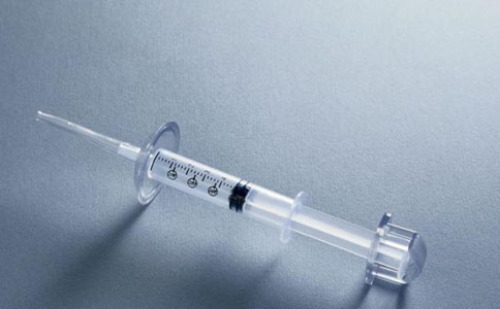Introduction: China's currently widely used AIDS treatment drugs are generic drugs, and most of them are imitation anti-aimed drugs developed in the 1980s and 1990s. "From the viewpoint of effectiveness and safety, Alboweitai has better efficacy than the second-line drugs commonly used in developed countries. It has little toxic and side effects, especially in terms of kidney damage, and it changes the patient's daily medication to weekly. One injection, this achievement is a major breakthrough in the world's anti-AI drug development field."

A few days ago, the expert group of the Food and Drug Auditing and Inspection Center of the State Food and Drug Administration came to Beijing You'an Hospital, Capital Medical University to verify the clinical trial data of a new generation of anti-AIDS drugs independently researched and developed by Chinese scientists, marking China’s leading global research and development. The anti-AIDS drugs entered the final stage of sprinting before they were listed. The drug is expected to become the world's first long-acting anti-aesthetic.
The first anti-Ai long-acting injection
Dr. Aibo Weitai, an HIV fusion inhibitor developed by the team led by Dr. Xie Dong of the National Thousand Talents Program Scientists, blocked the entry of virus into target cells by blocking the fusion of the virus with the target cell membrane and blocked the virus replication cycle at the initial stage of infection. In February 2014, Phase III clinical trials were initiated in 12 clinical centers nationwide.
"Long-acting injections can bring AIDS patients with clinical benefits that cannot be provided by oral drugs. It is an important trend in the development of international anti-AIDS drugs. This is the world's first declared new drug and original long-acting anti-AIDS injection," said Xie Dong.
All three therapeutic indicators met
Professor Wu Wei, director of the Beijing Youan Hospital Infection Center, responsible for the entire clinical trial organization of the drug, and the member of the National Health and Family Planning Commission’s AIDS Expert Consultation Committee, introduced the mid-term data summary that all primary endpoint indicators for one major and three secondary trials reached expectations in advance. Among them, 80.4% of the patients in the experimental group had blood virus suppression below the detection sensitivity (50 copies/ml). The other three efficacy indicators, including the percentage of effective treatment, the absolute decrease in virus concentration, and the increase in immunity were all achieved.
Patients do not have to take medicine every day
The AIDS drugs commonly used in China are generic drugs, and most of them are imitation anti-aimed drugs developed in the 1980s and 1990s. "From the viewpoint of effectiveness and safety, Alboweitai has better efficacy than the second-line drugs commonly used in developed countries. It has little toxic and side effects, especially in terms of kidney damage, and it changes the patient's daily medication to weekly. One injection, this achievement is a major breakthrough in the world's anti-AI drug development field." Wu Yu said.
It is understood that the State Food and Drug Administration officially accepted the new drug application for this drug on July 18th, and then initiated the priority review process.
"At present, any drug regulatory agency in the United States, including the U.S. Food and Drug Administration, has not yet approved a long-term anti-AI drug. If Aibo Weitai is approved, it is likely to become the world's first Anti-Ai's long-acting drugs, said Zhang Fujie, head of the National Health and Family Planning Commission's AIDS clinical working group.
Surgical Drapes,New Nonwoven Drapes,Pediatric Universal Drapes,Banded Bag Surgical Drape
Zhende Medical Co.,Ltd , https://www.zdmedicalproducts.com